Fever in cats is a common occurrence and can be caused by various factors. It’s important to note that their body temperature differs from humans, so extra care and attention are required to identify and treat fever in cats promptly.
1 How to Tell if Your Cat Has a Fever
Changes in Sleep Patterns
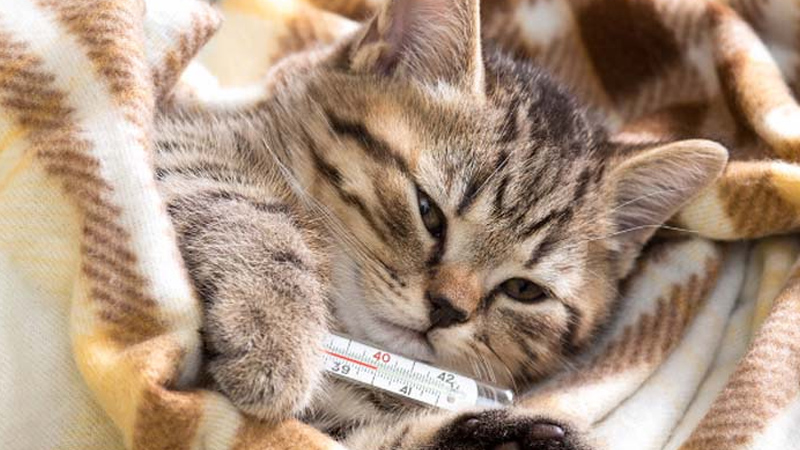
Feverish cats tend to sleep excessively during the day and become less active. Keep an eye on your cat’s sleeping habits and look for any unusual changes.
As the fever worsens, your cat may experience vomiting and diarrhea, which are alarming symptoms that require immediate attention.
Altered Eating Habits
Just like humans, cats may lose their appetite when they have a fever. They may stop eating or only eat very small amounts. Take note that a loss of interest in food could indicate a more severe condition.
Reference:
Cat Body Temperature
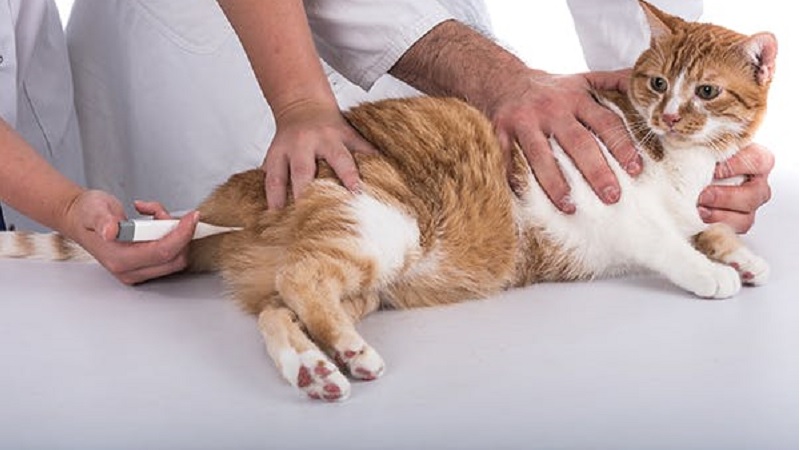
A quick way to check for a fever is to take your cat’s body temperature. A normal temperature for a cat is between 38°C and 39°C (101°F and 102°F). If your cat’s temperature rises above 39.5°C (103°F), it’s considered a fever, and veterinary care is necessary.
Examine Your Cat’s Coat
A feverish cat may experience increased hair loss, and its coat may appear disheveled and darker in color.
For further reference: Signs of illness and treatment options
2 Common Causes of Fever in Cats
Prolonged exposure to cold water during baths or being in a cold environment can lead to a fever in cats. Additionally, sudden excitement, infections, poisoning, malnutrition, and conditions affecting the hypothalamus (the part of the brain that regulates body temperature) can all contribute to a fever and loss of appetite in cats.
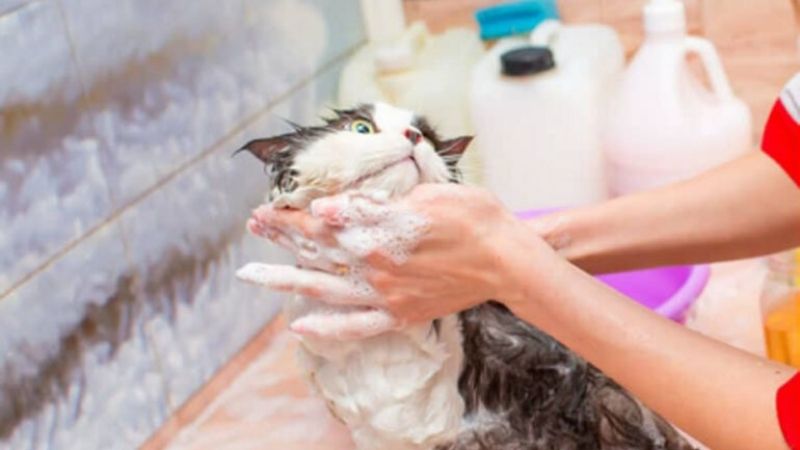 Prolonged bathing can also cause fever in cats.
Prolonged bathing can also cause fever in cats.
3 Quick Ways to Reduce Your Cat’s Fever
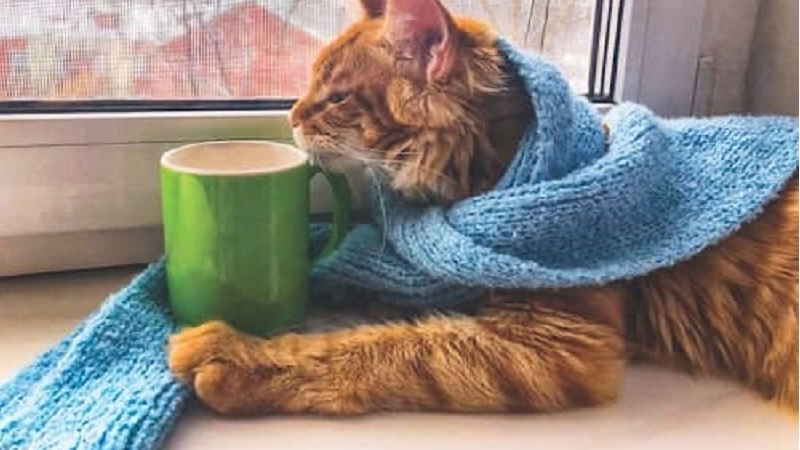
Avoid giving your cat any medication without veterinary advice. Many drugs that are safe for dogs can be dangerous for cats, especially aspirin. Incorrect dosage can lead to severe health issues or even death.
If your cat’s fever persists and it continues to refuse food for 24 hours, take it to a veterinarian for treatment and advice. Provide the vet with a detailed history, including recent travel, vaccinations, and any other factors that may have contributed to the illness.
4 Caring for Your Cat During a Fever
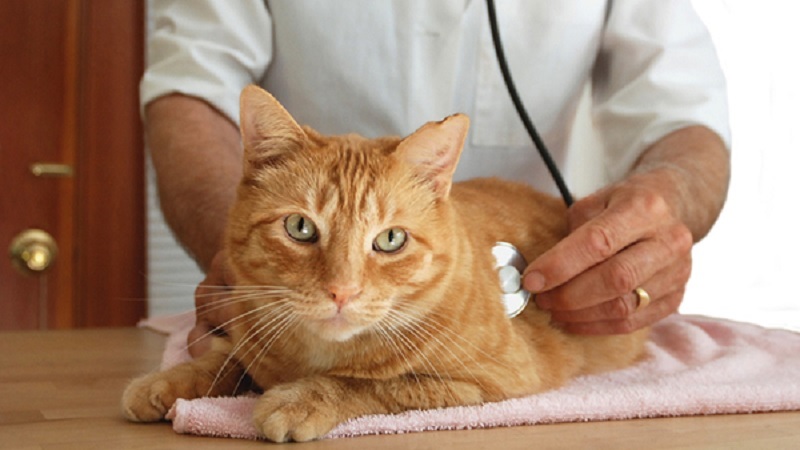
Ensure your cat gets plenty of rest and provide it with a nutritious diet to boost its energy and immune system.
If your cat is too weak to eat solid food, consult your veterinarian about liquid food or nutritional supplements with a high calorie count.
Follow the veterinarian’s instructions carefully and administer any prescribed medication as directed, even if your cat’s symptoms improve.
Caring for a sick pet can be challenging, but with the right information and guidance, you can effectively care for and treat your cat’s fever and loss of appetite.

































